'Fertilizing onions is essential for bigger, stronger crops' – an onion growing expert reveals how to do it
Give your onion crops the best chance of success with expert tips on what to feed them and when to do it
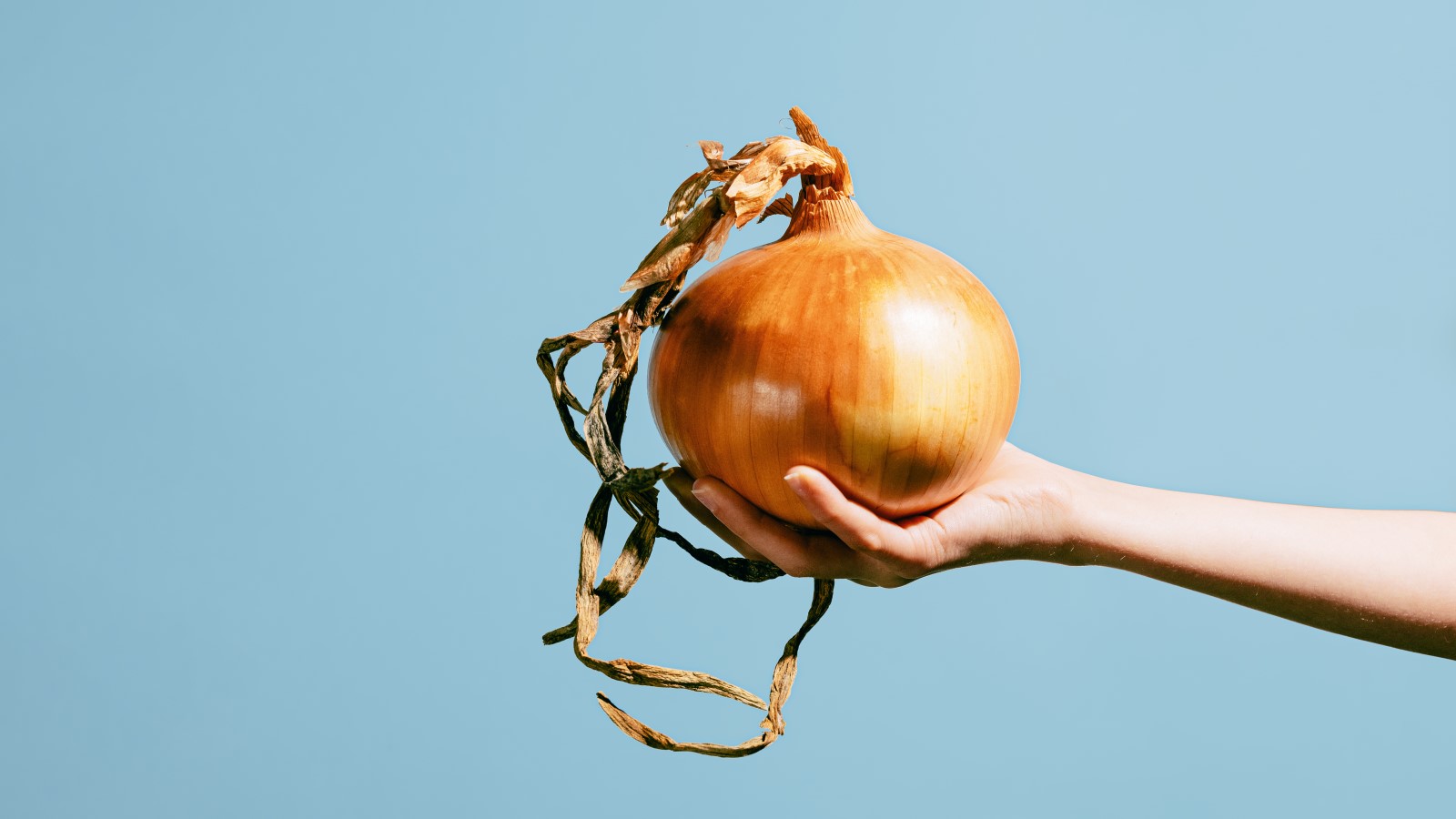

Onions are a hugely popular vegetable to grow and have a multitude of uses. They can be a simple crop for a grower of any experience, but if you are wanting to cultivate the best bulbs then correctly fertilizing onions is key.
Onions can be planted in fall or spring and the planting date dictates when to start fertilizing them. If you want big and strong onions, it means adding fertilizer when you plant them and consistently through their growing period. There does come a point where you need to stop feeding them.
A correct routine of fertilizing is an important aspect of how to grow onions. Understanding what types of fertilizer to apply at the right time can make all the difference, especially if you are seeking to grow the biggest onions possible.
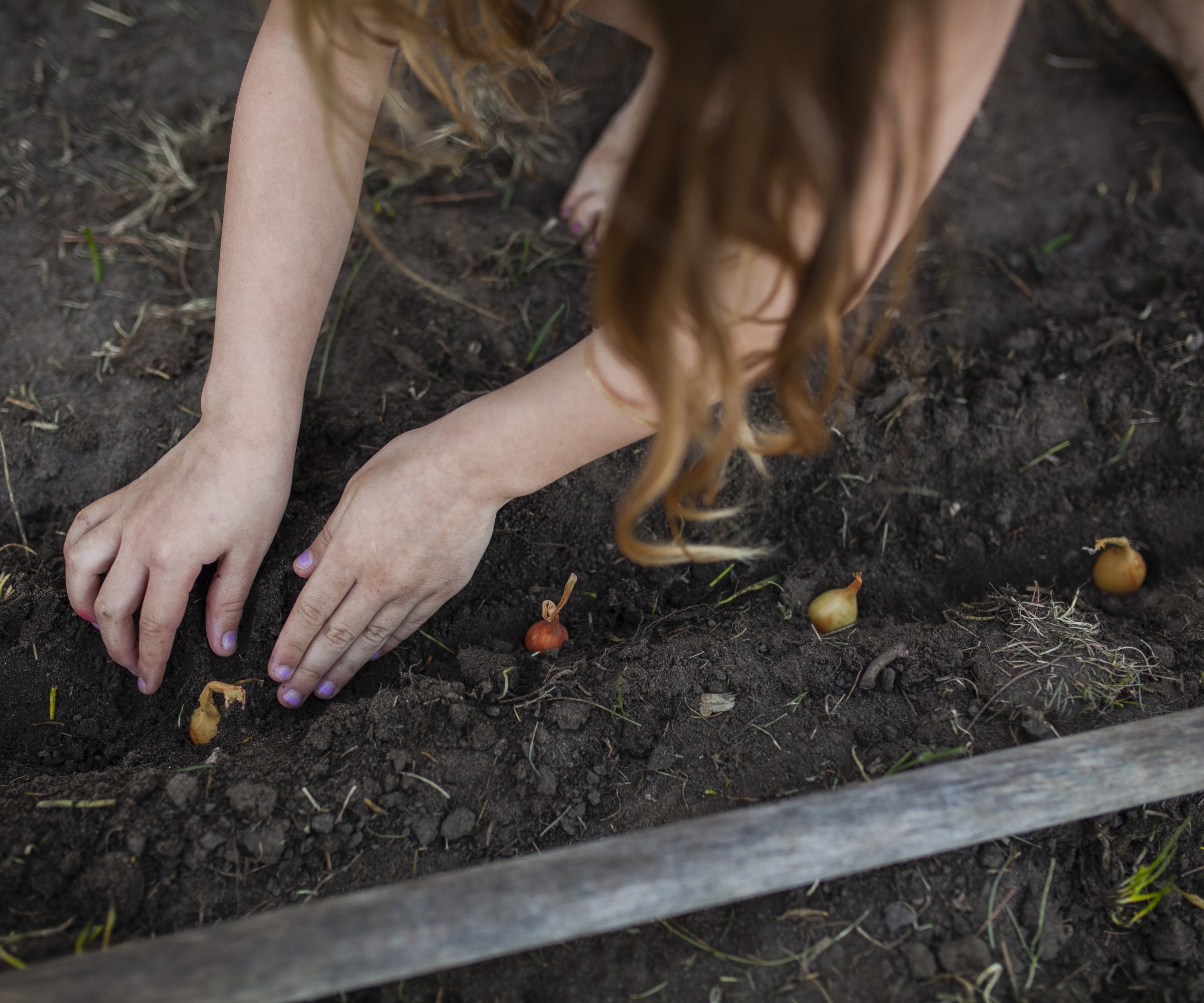
Apply fertilizer when planting onion sets in the yard

Drew is a former professional gardener who specialized in growing vegetables and fruit. He worked in kitchen gardens for the National Trust in the UK for several years and then ran a productive walled garden growing vegetables for a high-caliber restaurant in England. He always grew onions in the kitchen gardens and he has grown and harvested many different types over the years.
When to fertilize onions
Growers need to be adding fertilizer when planting onions, whether from sets or transplanting onion seedlings, and also carrying on a fertilizing regime during the plant’s growing season.
Fertilizers contain three key elements in nitrogen (N), phosphorus (P), and potassium (K) and the packaging will show three plant fertilizer numbers that correspond to the percentage make-up of NPK.
Bruce L Frasier, President of Dixondale Farms in Texas, a family farm that has been growing onions for over 100 years, advises a regular feeding regime and recommends the best nutrients the crops need at each stage of fertilization.
He suggests: ‘A balanced fertilizer (10-20-10) is needed at planting for the onion to establish a healthy root system.
‘After 3 weeks, the onion needs an application of straight nitrogen (21-0-0) every 2-3 weeks. Nitrogen promotes foliage so continue applying it periodically until bulbing begins.’
Onions can be grown either from onion sets or seeds. If you plant onion sets in fall, then an application of a high-nitrogen fertilizer at the start of winter both provides nutrients to grow strong and also helps prevent bolting – where the onion prematurely flowers due to stress.
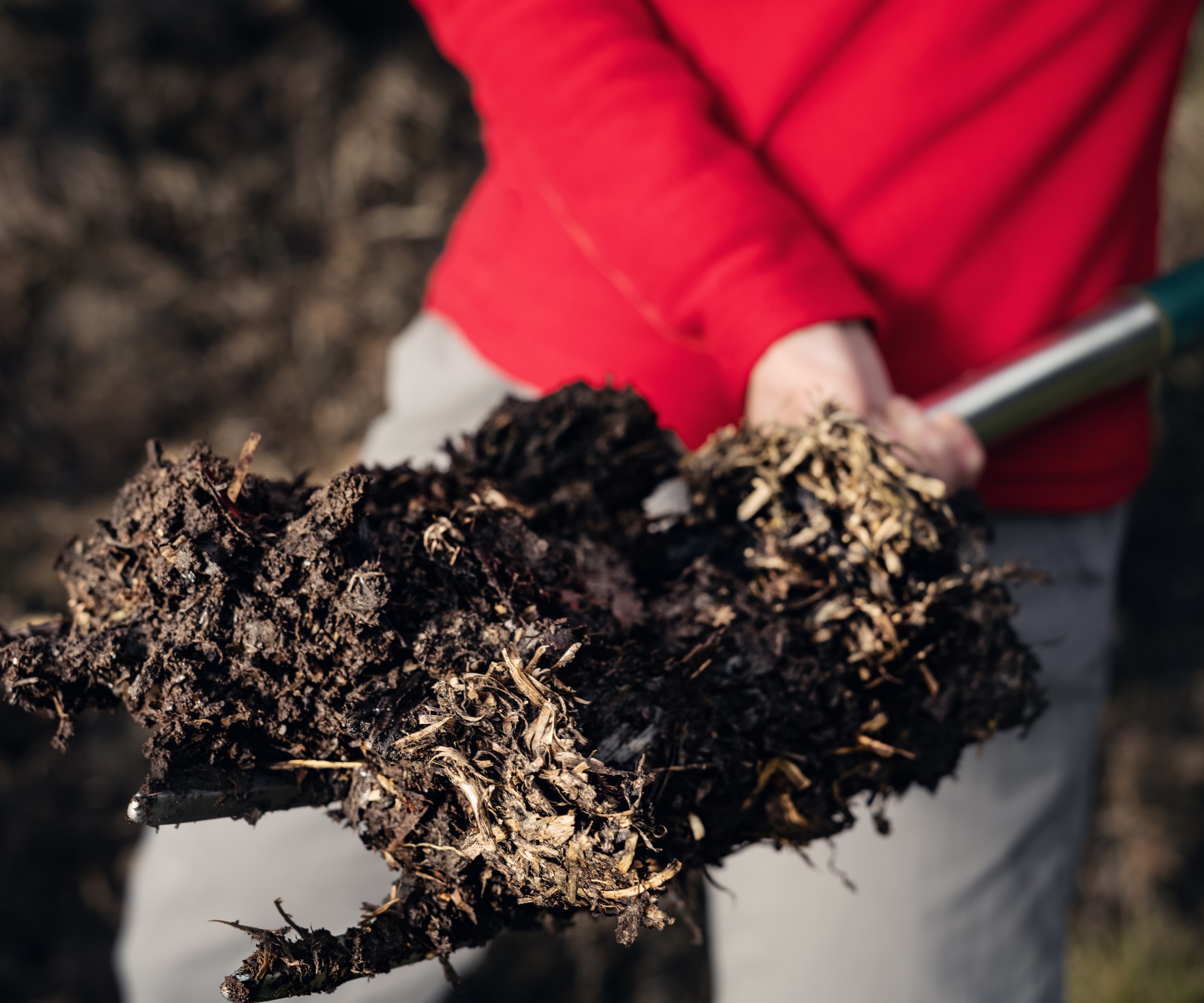
Well-rotted animal manure can provide important nutrients for onions
How to fertilize onions
Fertilizing onions is a fairly simple process and you should only apply the fertilizer at the recommended rate that will be listed on the packaging.
Getting the timing right is important, as you should only fertilize onions when their tops are dry. Another important fact, as recommended by Bruce Frasier from Dixondale Farms, is to only use a granular fertilizer.
He says: ‘Onions prefer granular since they don’t get fed all that well with liquid fertilizer. Sprinkle along the side of the plants and water in. The roots will take up the nutrients. That is the only reason they are there.’
Make a small furrow around 2-3 inches deep between your rows of onions and then work the fertilizer into the soil. Water the furrows well after each application of the fertilizer, taking care not to wet the growing foliage when watering the plants.
If you are growing onions in containers, make the furrow through the center of your plants or around the outer edge of the pot or planter.
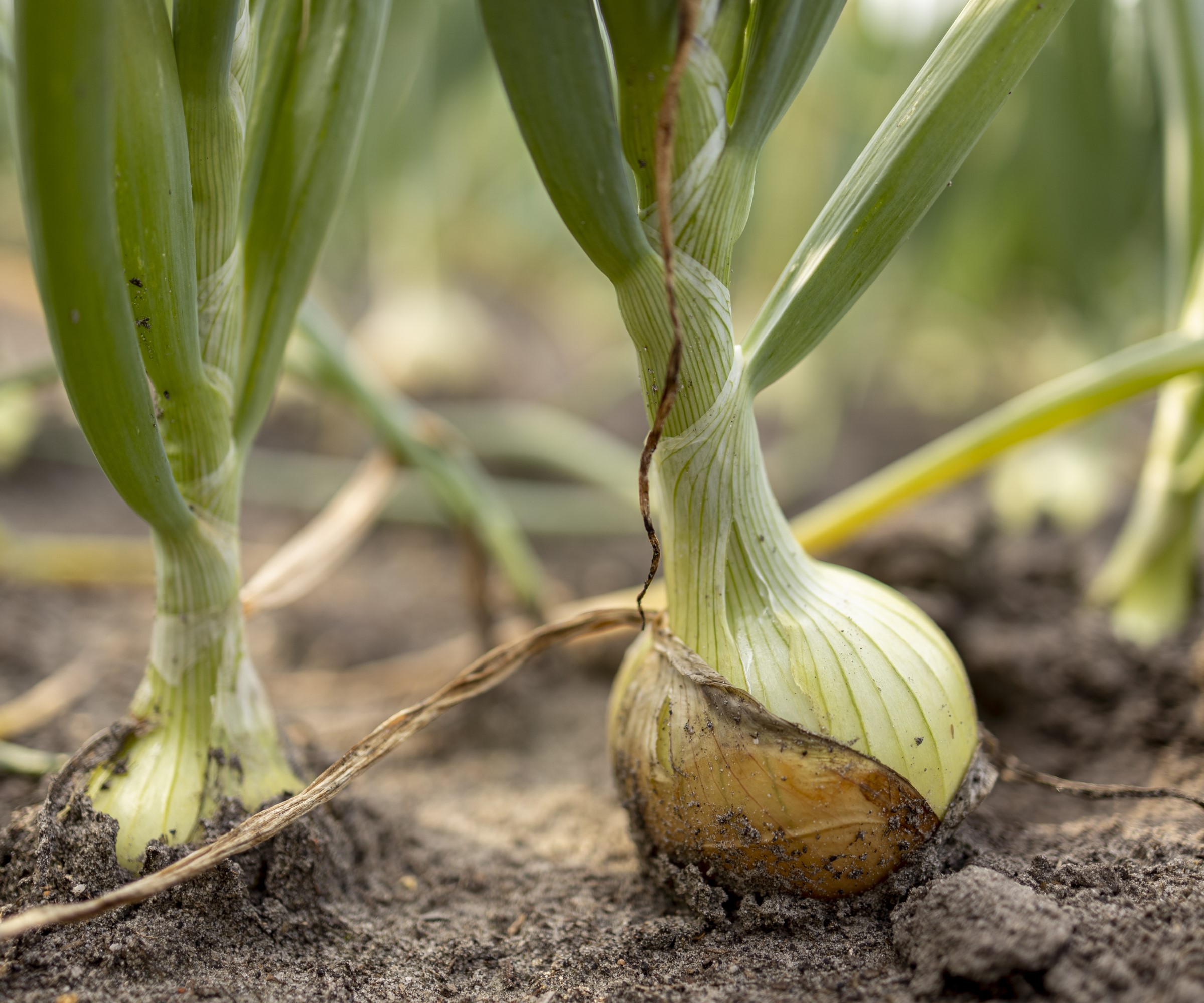
A good fertilizing regime can boost the size of your bulbs
When to stop fertilizing onions
All watering and fertilizing of onions should stop once the bulbs have swollen, which will be around mid-summer. Signs that the bulbs have stopped growing include the leaves starting to turn yellow and the neck starting to feel soft. This should be around four weeks before they are ready for harvest.
It is vital to stop watering and feeding the plants by mid-summer as continuing to do so will impair their storage ability.
If you are thinking of storing onions, then getting the longest lifespan for your crops is important. Stopping fertilizing onions and watering the crops is a vital cog in ensuring your harvest will keep for as long as possible.
Best fertilizer for onions
Vegetable growers can now get specific onion fertilizers from retailers that are slow-release and designed to give you tasty and bigger onions. Balanced granular fertilizers will come in ratios such as 10-10-10 or 12-12-12, as well as the 10-20-10 recommended by Bruce L Frasier, and will work perfectly for onions.
Nitrogen-rich fertilizers are commonly available and can include the likes of ammonium sulfate, calcium nitrate, or feather meal. A good example is the Hi-yield Ammonium Sulfate fertilizer from Walmart or Calcium Nitrate from Amazon.
If you are growing your onions to organic principles, then digging in plenty of well-rotted manure or compost before planting is vital. You can also use organic fertilizers, such as blood meal and bone meal granular fertilizers, which you can both get from Burpee.
While the onion is growing, consider mulching around the plants with compost, grass clippings, well-rotted manure, or straw to add extra nutrients as it decomposes. Mulch after planting the crop, however if you transplant onions seedlings wait for them to get larger before mulching to make sure you do not smother the small plants.
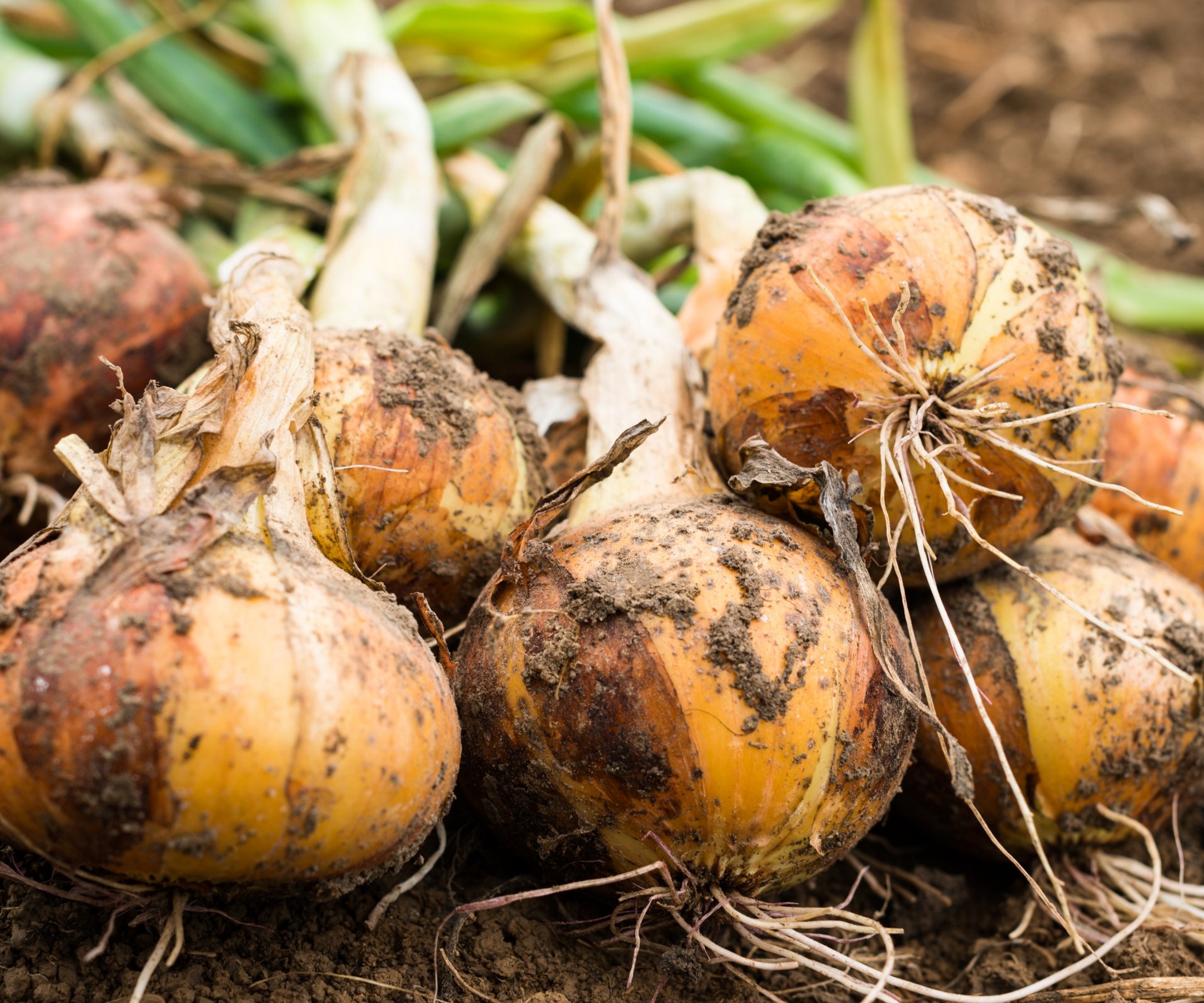
Onions can store for up to one year in the right conditions
Tips for getting bigger onions
If you want the biggest and best onions then it is imperative to make early preparations, as they are heavy feeders.
The key to growing bigger onions is to get your soil loose and fertile before planting. Work in a layer of well-rotted manure or compost into the soil. This will add vital nutrients as compost contains lots of NPK as well as helping to improve the soil structure and the moisture-retention capability of the soil.
By preparing the ground potentially months before planting you will be giving your onions the best possible base. That groundwork, coupled with a consistent routine of fertilizing the crop when they are planted and as they grow, should mean bigger bulbs when it is time to harvest onions.
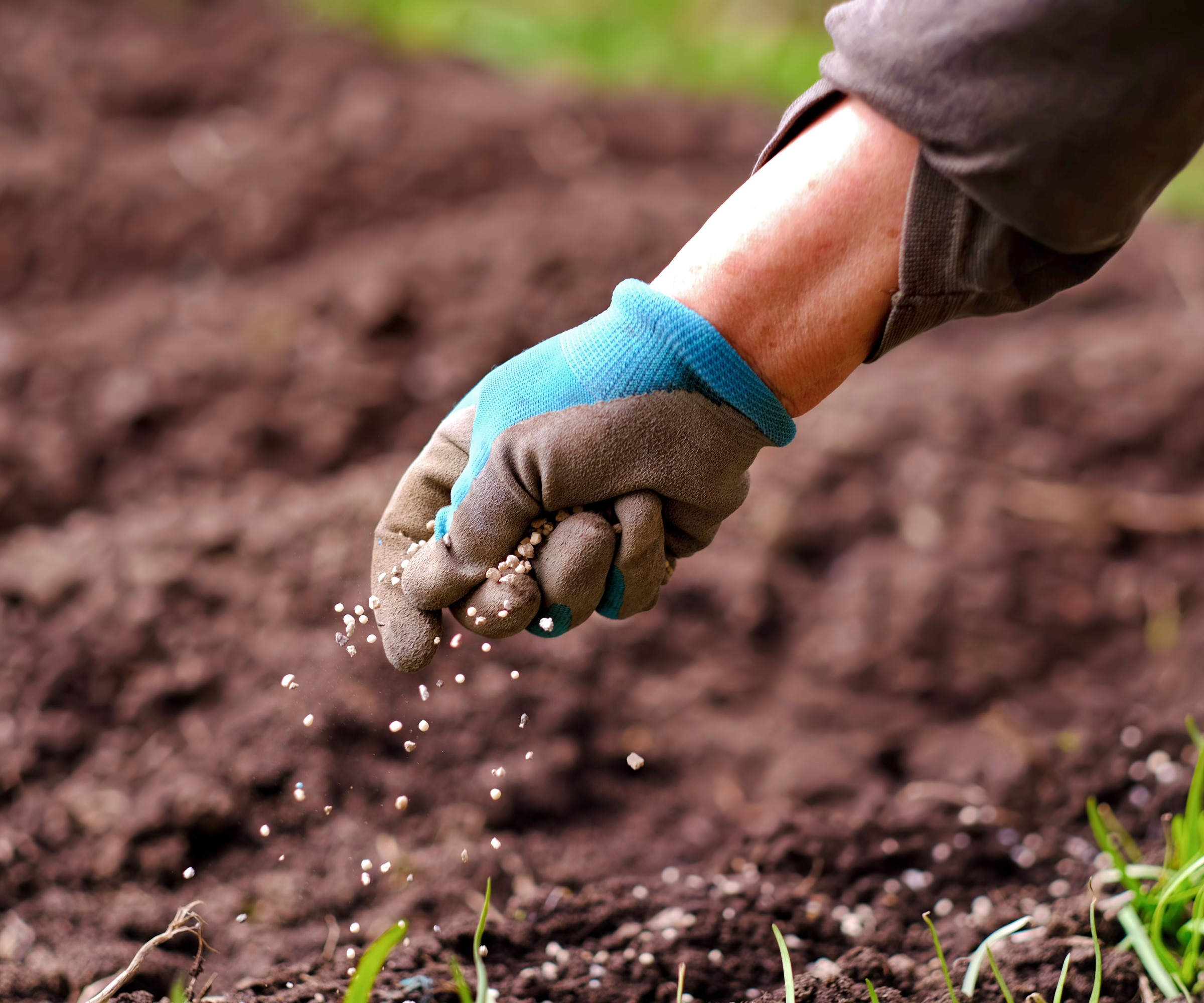
Granular fertilizer should be scattered around plants and mixed into the soil
FAQs
Is tomato feed good for onions?
Onions need a high-nitrogen fertilizer in which to increase bulb size. If you want to get your onions to grow bigger, nitrogen is key. Tomato fertilizers are more balanced in their NPK ratio, for example the Expert Gardener Tomato & Vegetable Garden Plant Food Fertilizer from Walmart has an NPK ratio of 12-10-5. They can be beneficial to onions as both nitrogen and phosphorus are important nutrients for the plants. A tomato food will offer a good level of nitrogen to grow the plants and phosphorus to help the bulb grow, however, if you want the biggest onions then focus on a predominantly straight nitrogen fertilizer.
Is bone meal good for onions?
Bone meal is a great source of phosphorus and is good for root development. Unfortunately it does not offer much nitrogen and often comes in with an NPK ratio of around 3-15-0. That means bone meal is not an ideal fertilizer for onions, that, as previously mentioned, want a lot of nitrogen during the growing season.
Is blood meal good for onions?
Blood meal is a great way to add nitrogen into the garden and this Natural Organic Blood Meal from Burpee, for example, has an NPK ratio 12-0-0. If you want to get bigger onions, the addition of blood meal is an ideal way to give your bulbs that fix of nitrogen they need to grow. Blood meal is a slow-release fertilizer and its benefits can remain in the soil for an extended period after an application.
Do onions like manure?
The addition of manure several months before planting can be beneficial for all types of onions as they are a crop with a small root system that won’t search far for nutrients. Avoid using fresh manure on the crop as it can be really high in nitrogen and ammonia and actually burn their roots. Any manure applied before planting or as a mulch needs to be well-rotted.
Sign up to the Homes & Gardens newsletter
Design expertise in your inbox – from inspiring decorating ideas and beautiful celebrity homes to practical gardening advice and shopping round-ups.

Drew’s passion for gardening started with growing vegetables and salad in raised beds in a small urban terrace garden. He has worked as a professional gardener in historic gardens and specialises in growing vegetables, fruit, herbs, and cut flowers as a kitchen gardener. That passion for growing extends to being an allotmenteer, garden blogger, and producing how-to gardening guides for websites. Drew was shortlisted for the New Talent of the Year award at the 2023 Garden Media Guild Awards.
-
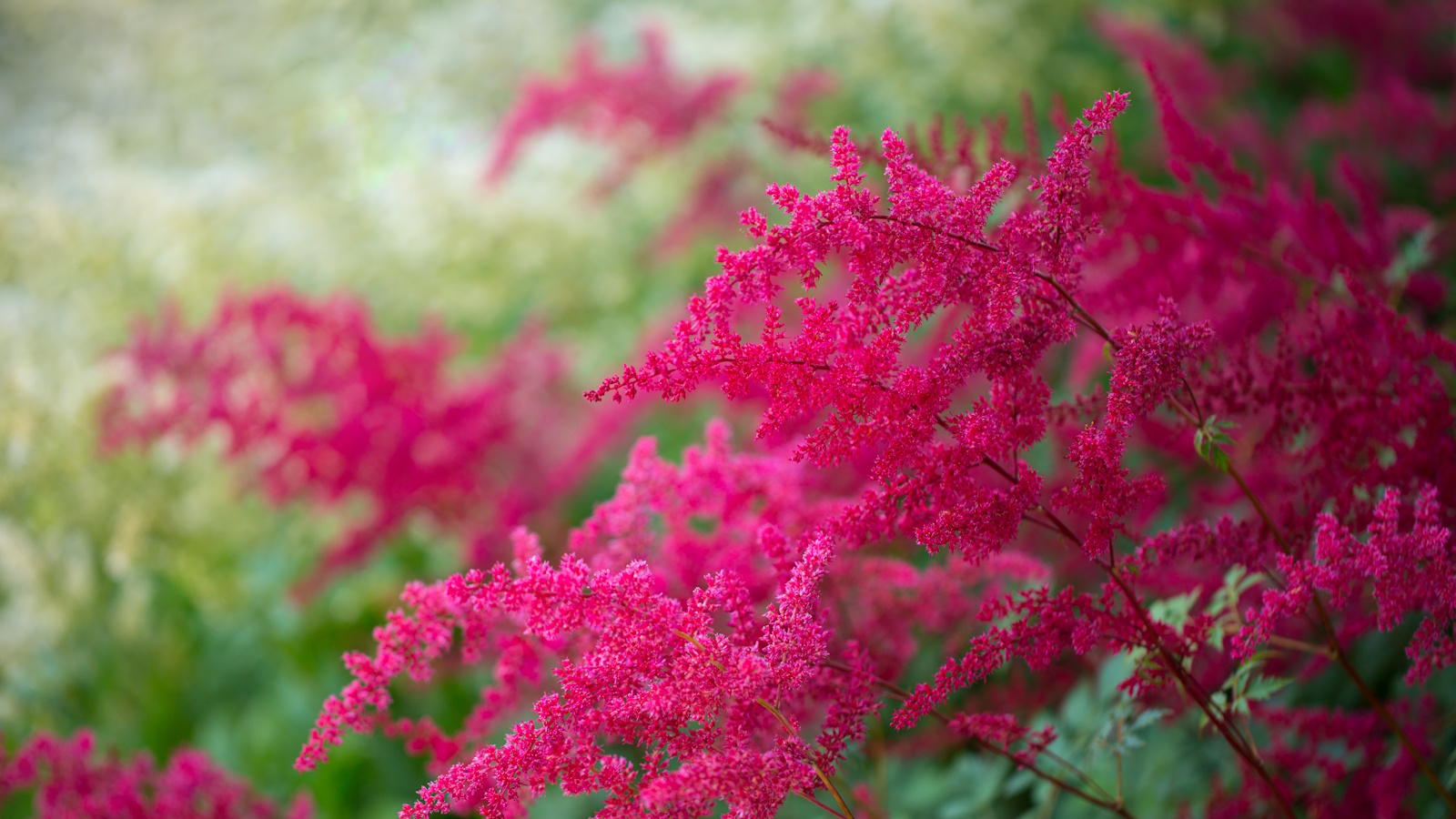 How to grow astilbe – expert advice on cultivating this shade-tolerant flowering perennial
How to grow astilbe – expert advice on cultivating this shade-tolerant flowering perennialShade-tolerant and pest-resistant - astilbe are hardy and tough perennials that can thrive in many settings
By Ellen Wells Published
-
 Vintage prints are making a comeback – designers say to look out for these 5 nostalgic patterns this year
Vintage prints are making a comeback – designers say to look out for these 5 nostalgic patterns this yearThese vintage-style patterns are all the rage right now, and we spoke with design experts to learn how best to style them in the home
By Eleanor Richardson Published